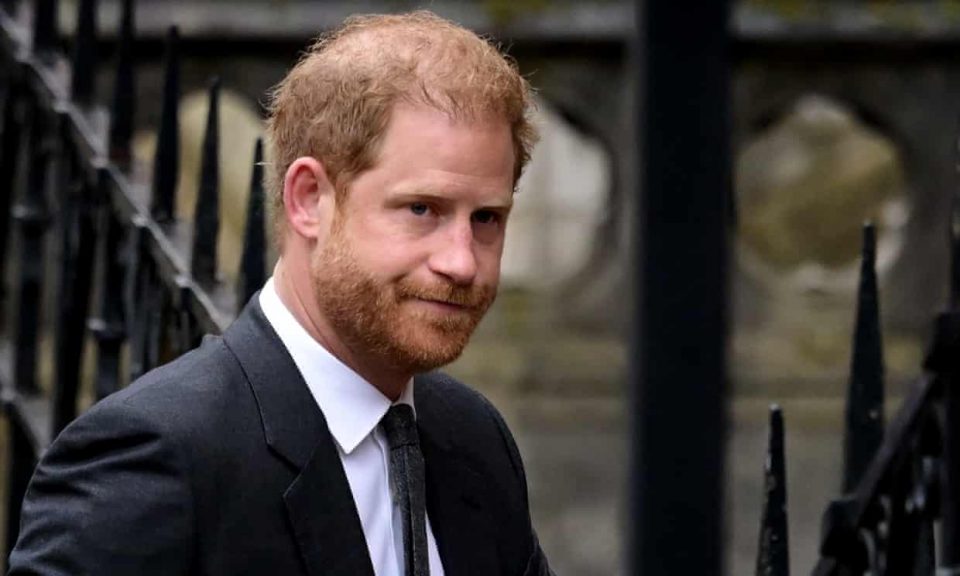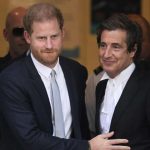The agreement was reached at 10:16 AM—just 14 minutes before the court proceedings were scheduled to begin in courtroom 30 at the Rolls Building of the Royal Courts of Justice.
Following a whirlwind 24 hours filled with legal discussions, Rupert Murdoch’s News Group Newspapers (NGN) consented to provide a public apology to Prince Harry, the Duke of Sussex, and for the first time acknowledge that, in addition to the infamous criminal acts of the now-defunct News of the World, there had been “incidents of unlawful activities undertaken by private investigators working for the Sun.”
The total costs and damages payable to Harry and his co-claimant, Tom Watson, former deputy leader of the Labour party, exceed £10 million. However, the intense negotiations were about more than just the staggering financial figures and legal terminology.
When seeking an additional delay for the trial to facilitate ongoing negotiations, NGN’s barrister, Anthony Hudson KC, indicated to Mr. Justice Fancourt that the “time difference” posed a significant logistical challenge.
“A source familiar with the case noted, ‘The judge presumed this was due to Harry being in California. However, there was also a direct line to New York, and Lachlan Murdoch was on the other end, overseeing the process continuously. It was Lachlan Murdoch who ultimately approved the acknowledgment of the unlawful activity.’” NGN’s spokesperson chose to refrain from commenting.
A £10 million payout is negligible for News Corp, which reported over $9 billion in revenue in 2023. The involvement of Rupert Murdoch’s eldest son, who chairs News Corp, signifies the company’s desire to resolve a saga that has threatened the scrutiny of its current and former executives by law enforcement.
The Crown Prosecution Service wrapped up its inquiry into the voicemail hacking activities conducted by journalists or private investigators on their behalf in 2015, resulting in nine convictions, including that of Andy Coulson, the former editor of the News of the World and ex-Press Secretary to the Prime Minister, who was sentenced to 18 months in prison.
Rebekah Brooks, the current CEO of NGN and former editor of both the Sun and News of the World, was acquitted in 2014 of conspiracy charges related to voicemail hacking, bribes to public officials, and obstructing justice.
Despite this, calls for renewed police investigations have persisted, notably from former Prime Minister Gordon Brown, following revelations in the high court regarding minutes from a 2011 meeting between police and Will Lewis, then a senior NGN executive and now the CEO of the Washington Post.
Investigators had been looking into Brown’s complaint concerning the mass deletion of emails by senior executives at Murdoch’s company during the police’s illegality inquiries. Lewis attempted to justify the deletions by alleging that Brown was orchestrating a scheme with Lord Watson, then a Labour MP, to gain access to Brooks’ emails through an intermediary. At that time, Lewis was the general manager of the company.
In light of the settlement announced on Wednesday, NGN conceded that “this information was false, and Lord Watson did not receive any such confidential information. NGN sincerely apologizes for this.”
The Metropolitan Police declared earlier this summer that a special inquiry team was investigating cover-up allegations based on the disclosed minutes. However, a full court trial would have scrutinized the evidence, and a favorable outcome for Harry and Watson might have resulted in further criminal investigations. This might be the juncture at which Murdoch seeks to close the chapter on the scandal.
NGN’s spokesperson claimed, “The allegations regarding the destruction of evidence have always been and remain vehemently denied. Ample evidence would have been presented in court to counter these accusations from senior members of technology and legal departments.”
Insiders close to Harry and Watson acknowledge that Met Commissioner Sir Mark Rowley may not be particularly keen on reopening this issue. Nevertheless, it has been reported that the Met has sought transcripts relating to pre-trial hearings.
On the courthouse steps, Watson took the opportunity to announce his intention to forward a dossier of evidence disclosed to the claimants to the Met for further action. The peer’s legal team is currently organizing the file, which is expected to be submitted within weeks.
For those interested in its contents, Judge Fancourt indicated the significant nature of claims in a judgment connected to a similar case brought by Hollywood actor Hugh Grant, who also settled with NGN earlier this year. If substantiated, such claims could reveal “very serious, deliberate wrongdoing at NGN, conducted systematically on a large scale,” he stated.
“They could also demonstrate a concerted effort to conceal these wrongdoings through the hiding and destruction of relevant documentation, persistent public denials, deception toward regulators and authorities, and threats to anyone who dared to speak out or file claims against the Sun.”
Despite the growing expenses and familial opposition, Harry had expressed a strong determination to present the evidence in court. However, the odds were not in his favor.
In civil litigation, if the damages awarded to a successful claimant fall short of the settlement tendered by the defendant, that claimant might be liable for the legal fees incurred by all parties involved.
The legal representatives for Harry and Watson sought an acknowledgment of evidence destruction in the settlement, which was not granted. They do believe, however, that NGN’s apology and recognition of illegal actions by private investigators for the Sun convey an admission of dishonesty deserving of further police scrutiny.
According to a source, “We were essentially trying to establish two key points. Either one would be sufficient to demonstrate they were lying. It was either evidence destruction or unlawful behavior, and once the unlawful behavior was acknowledged in the statement, we felt we could reach a settlement.”
Consequently, with considerable frustration at NGN’s London Bridge headquarters, the claimants’ barrister, David Sherborne, felt empowered to directly criticize the company’s CEO following the announcement at the Rolls Building.
Sherborne remarked, “During her 2014 trial, Rebekah Brooks claimed: ‘When I was editor of the Sun, we maintained a clean operation.’”
“Now, a decade later, as CEO, the company admits that under her editorship, they operated a criminal entity.”
NGN contended that the admission of unlawful activities does not implicate its journalists and should be interpreted against the backdrop of a time when Fleet Street newspapers relied on private investigators for tasks that could theoretically fall under a “public interest” exemption.
Regarding the implication that NGN’s CEO committed perjury by asserting she maintained a “clean ship,” an NGN spokesperson claimed Sherborne had misrepresented Brooks’ statements. They clarified that she had been referring specifically to any phone hacking and not to the employment of private investigators.
They added that Sherborne’s comments constitute “a misrepresentation by the claimant group regarding the outcome of the proceedings and the nature of the apology. Upon reevaluation of those remarks, it’s clear that Rebekah was misquoted and taken out of context. She has not misled anyone.”


